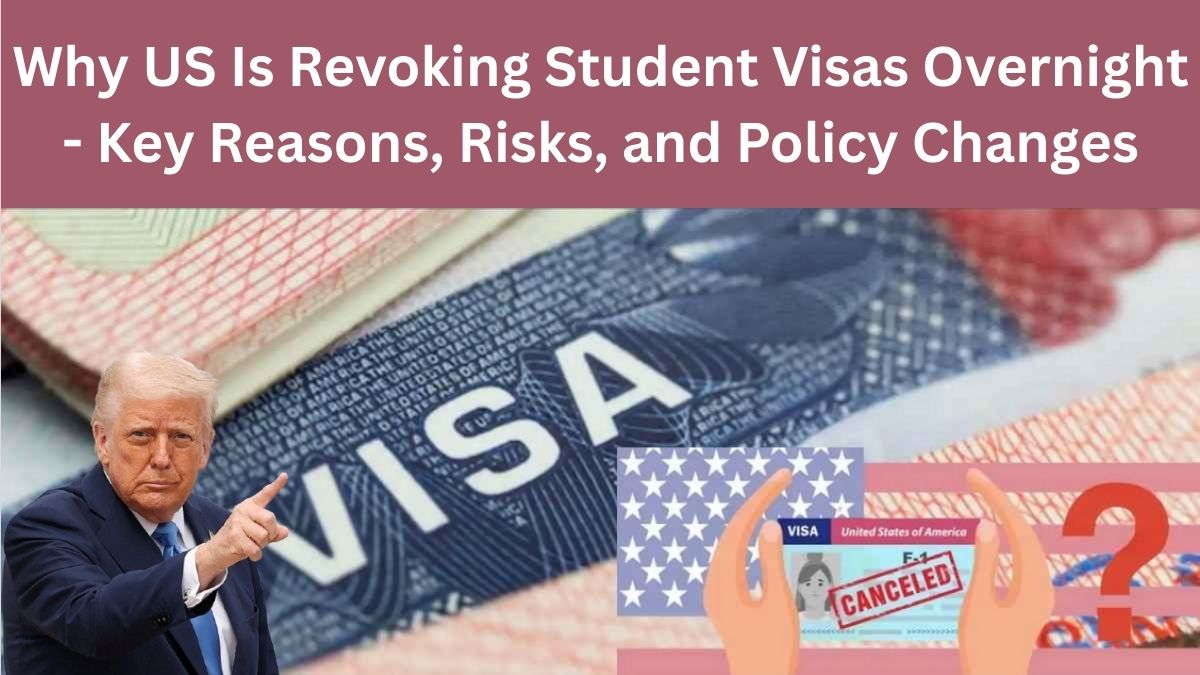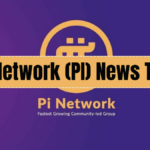International students studying in the United States on F-1 visas are increasingly finding themselves at risk of sudden visa cancellations. These revocations can happen with little or no warning and stem from a range of academic, legal, and political issues. From policy shifts to social media monitoring, the environment for student visa holders is becoming increasingly complex. Here’s a detailed breakdown of why student visas are being revoked and how international students can safeguard their status.
Understanding the F-1 Visa Framework
The F-1 visa is issued to foreign nationals pursuing full-time academic programs in U.S.-certified institutions under the Student and Exchange Visitor Program (SEVP). While it enables access to world-class education, it also comes with strict compliance requirements. A single misstep—intentional or accidental—can result in visa revocation and deportation.
Academic Violations That Trigger Visa Cancellation
1. Inadequate Course Load
Students must maintain a full-time academic load. Dropping below the required credit hours without authorization from a Designated School Official (DSO) can result in immediate visa revocation.
2. Poor Academic Performance
Academic failure or dismissal due to misconduct—such as plagiarism or cheating—can also lead to loss of visa status.
3. Course Delivery Format Changes
Switching to part-time, online-only, or hybrid formats without prior approval may breach SEVP compliance, especially if the changes aren’t reflected in SEVIS (Student and Exchange Visitor Information System).
Employment-Related Non-Compliance
1. Unauthorized Employment
Engaging in work outside the guidelines of Curricular Practical Training (CPT) or Optional Practical Training (OPT) can violate visa conditions.
2. Employment at Restricted Organizations
Working with organizations involved in defense, foreign political funding, or blacklisted entities may be considered a national security risk, triggering revocation.
Personal and Financial Triggers
1. Financial Instability
Students are expected to demonstrate continuous financial ability. Failing to pay tuition or lacking funds for living expenses can compromise visa validity.
2. Submission of Fraudulent Documents
Using forged admission letters, manipulated test scores, or false financial statements during the visa process can result in both visa revocation and legal prosecution.
3. Unreported Address Changes
Students are legally required to update their U.S. address within 10 days of any change. Failure to do so is a violation of federal immigration rules.
Immigration and Security-Based Revocations
1. Overstaying Visa Validity
Even an unintentional overstay past the date listed on Form I-94 can lead to future visa ineligibility and potential re-entry bans.
2. Criminal Activity
Arrests, ongoing investigations, or even minor charges can prompt a review of the student’s immigration status.
3. National Security Concerns
Visa holders flagged by intelligence agencies may face instant revocation—regardless of whether formal charges are filed.
Risks Related to Dependents and Transfers
1. Dependents Violating Rules
F-2 visa holders (dependents) are restricted in their activities. If they work or enroll in full-time education without approval, it can lead to revocation of the primary F-1 holder’s visa.
2. Transfer or Program Level Changes
Students changing schools or moving from one academic level to another must file a SEVIS transfer within 60 days. Missing this deadline risks out-of-status designation.
Emerging Threats Under Evolving U.S. Immigration Policies
1. Visa Revocation for Minor Infractions
Recent trends show visas being revoked for trivial infractions such as traffic violations—including past incidents that had been resolved. These actions often occur without prior notification, leaving students blindsided.
2. Crackdown on Student Activism
There have been reports of visa revocations linked to participation in political protests, particularly those supporting controversial causes. Authorities may interpret activism as potentially undermining U.S. foreign policy interests.
3. AI-Based Social Media Surveillance
The Department of Homeland Security (DHS) uses AI tools to monitor students’ digital footprints. Posts interpreted as anti-government or linked to banned groups can jeopardize visa renewals or trigger cancellation.
4. Country-Specific Visa Restrictions
Country-specific bans are also being enforced. South Sudanese students, for example, faced mass visa revocations under a policy penalizing nations that do not accept deported nationals.
5. Executive Orders Impacting Family Rights
Efforts to end birthright citizenship could affect students whose children are born in the U.S., introducing additional legal and residency complications.
Institutional Blind Spots and Government Audits
1. Lack of University Notification
Colleges are often not informed when a student’s visa is revoked, leaving them unable to intervene or provide support in a timely manner.
2. Increased Government Oversight
The DHS and ICE are now conducting detailed audits of school compliance with SEVIS regulations. Schools hosting politically active students could face scrutiny, potentially losing the right to enroll international students.
Common Reasons for Student Visa Revocation
| Category | Trigger |
|---|---|
| Academic | Dropping below course load, academic dismissal |
| Employment | Unauthorized work, work with restricted organizations |
| Financial | Inadequate funds, forged financial documents |
| Immigration | Overstay, criminal charges, unreported address changes |
| Dependents | F-2 visa rule violations, failure to report school transfers |
| Political & Legal | Activism, AI-monitored social media, country-specific bans |
| Institutional Oversight | School audits, lack of SEVIS compliance |
Frequently Asked Questions
Q1: Can a student visa be revoked without prior notice?
A: Yes. U.S. authorities can cancel a visa at any time if the student is deemed ineligible or poses a risk.
Q2: Do minor infractions like traffic tickets affect visa status?
A: Unfortunately, yes. Even minor legal issues can trigger a review of your immigration status.
Q3: Is social media monitored for visa compliance?
A: Yes. DHS has the authority to analyze social media for content deemed inappropriate or security-sensitive.
Q4: What happens if a dependent violates visa terms?
A: The primary F-1 visa holder can lose status if their F-2 dependent violates any immigration rules.
Q5: How can students protect themselves?
A: Maintain full-time enrollment, avoid unauthorized employment, update all records promptly, and be cautious with online content.
Click here to know more.




